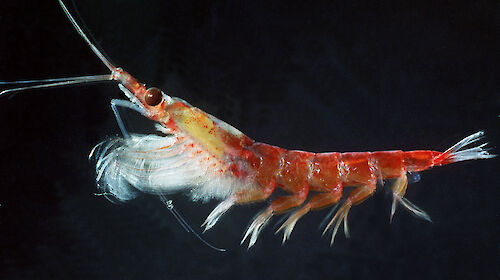Australian research showing a strong link between ocean current circulation and the abundance of Antarctic krill, published today in the prestigious science journal Nature, has given new insight into ways of managing the bountiful fisheries of the Southern Ocean.
The research has been hailed by the Minister for the Environment, Senator Robert Hill, as a major Australian achievement with global significance.
Data for the research was gathered on a 1996 Australian survey of the Southern Ocean, over two months and spanning 3,500 km of coastline. Oceanographers and biologists made the first direct observations of the large-scale spatial linkages between ocean circulation, Antarctic sea-ice and biological productivity.
What they discovered was that oceanic circulation drives the annual extent of sea ice, the position of oceanic boundaries and the abundance and distribution of Antarctic krill, phytoplankton, whales and seabirds.
"This research provides an integrated picture of the distribution and abundance of krill and the larger animals that feed upon them in the waters around Antarctica," Senator Hill said.
"For 25 years krill have been the subject of the largest Southern Ocean fishery. We need to be sure that we have safe harvesting limits in place, and this study will contribute greatly toward development of sustainable management strategies for the species."
Senior author of the paper, Dr Stephen Nicol, Program Leader for the Australian Antarctic Division's Antarctic Marine Living Resources program, said that the research underlines how critical the relationship is between the Antarctic marine ecosystem and any changes to the physical environment.
"Our results suggest that the whole Southern Ocean ecosystem is directly affected by changes in the extent of sea-ice and ocean circulation patterns. For example in a year when the southern boundary of the Antarctic Circumpolar Current moves inshore, the cold productive coastal current will be narrower, winter sea-ice will be less extensive and Antarctic krill will be scarce, or restricted close to the coast," Dr Nicol said.

